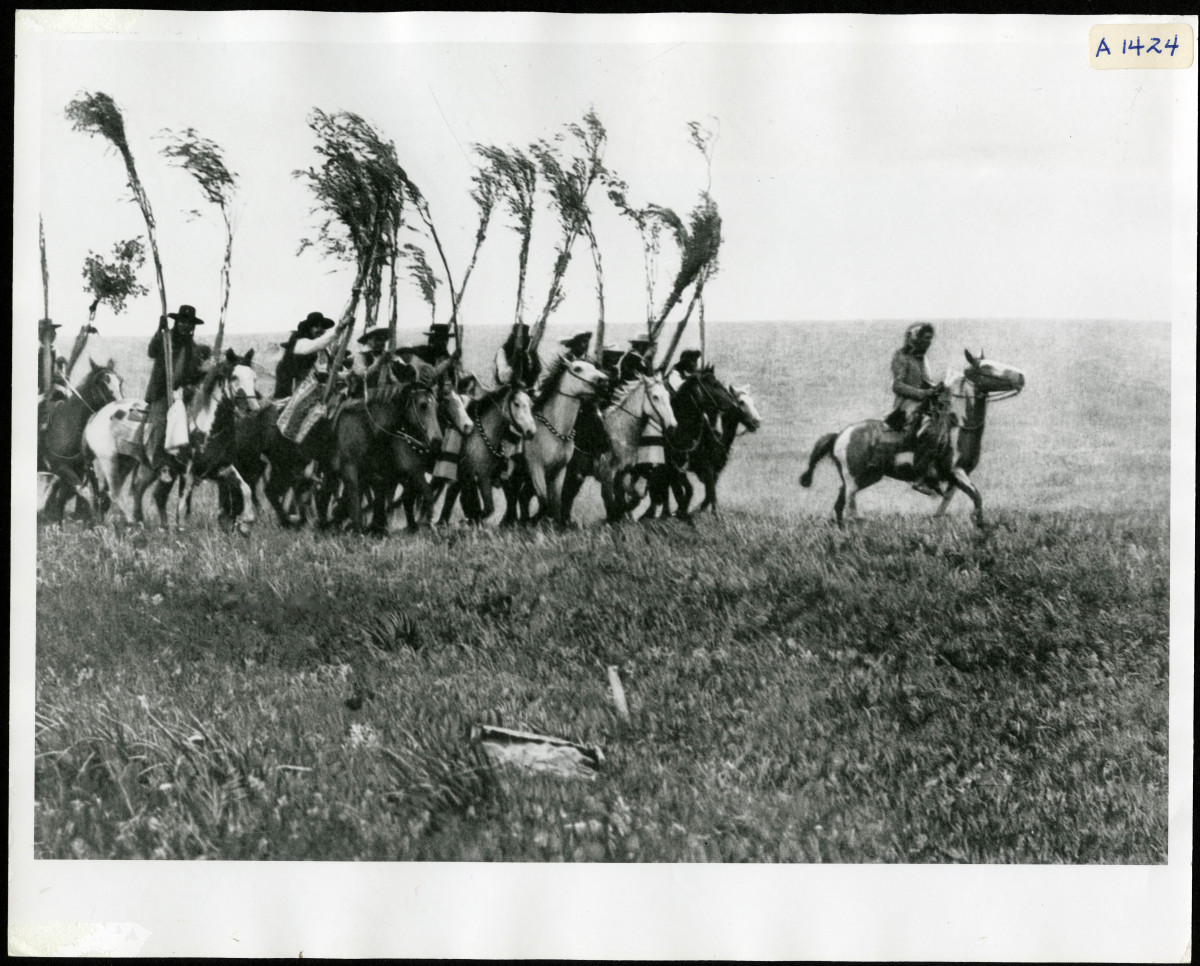To move between: Healing and Resistance
Alanis Obomsawin

Sigwan, Directed by Alanis Obomsawin, Produced by Alanis Obomsawin, Forest animals meet around a campfire.
Photo taken from the production.

To move between Healing and Resistance, Alanis Obomsawin. Installation view.

Sigwan, 2005. Alanis Obomsawin. Courtesy of the artist and National Film Board of Canada. Installation view.
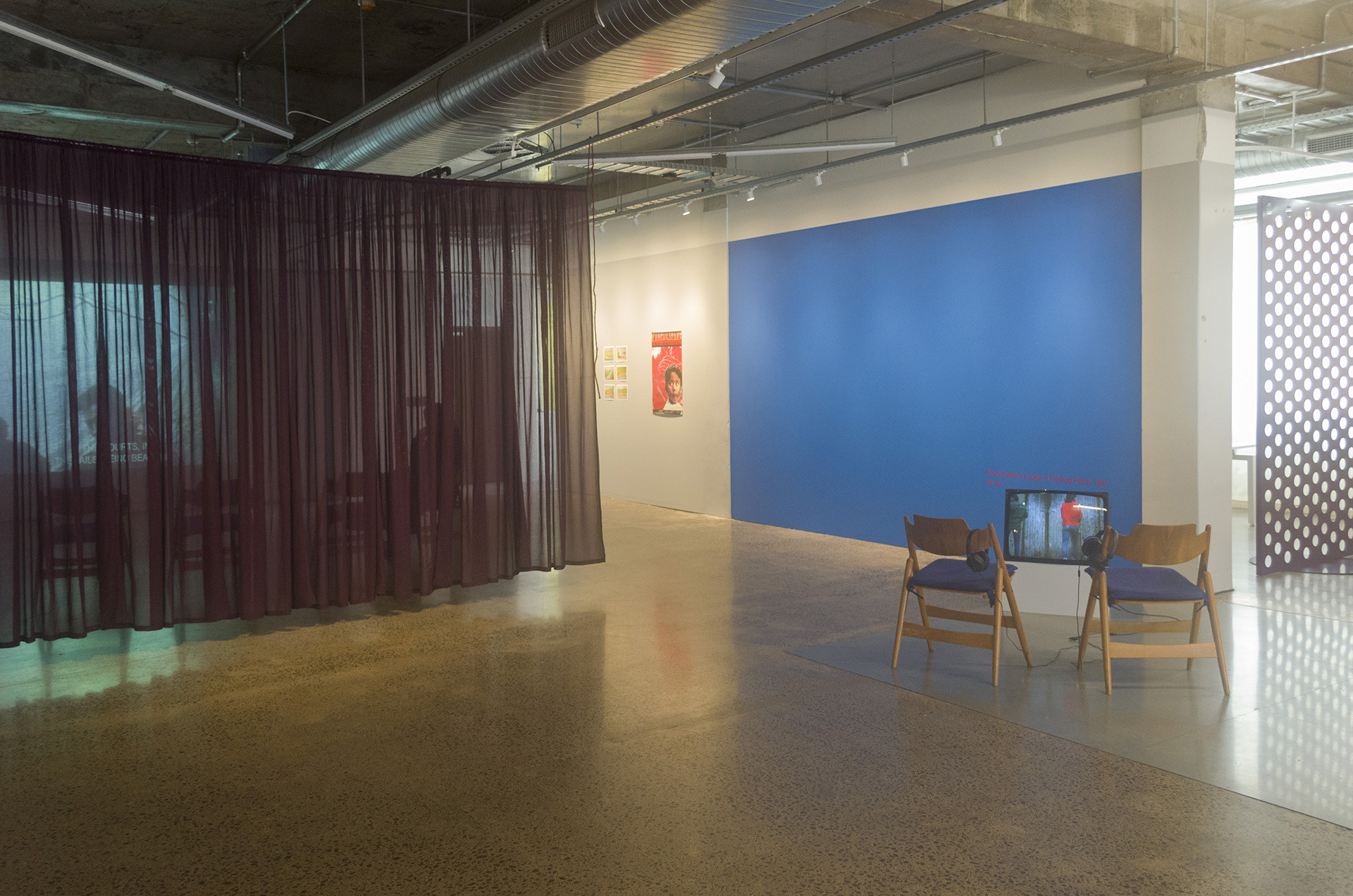
To move between: Healing and Resistance, Alanis Obomsawin. Installation view.
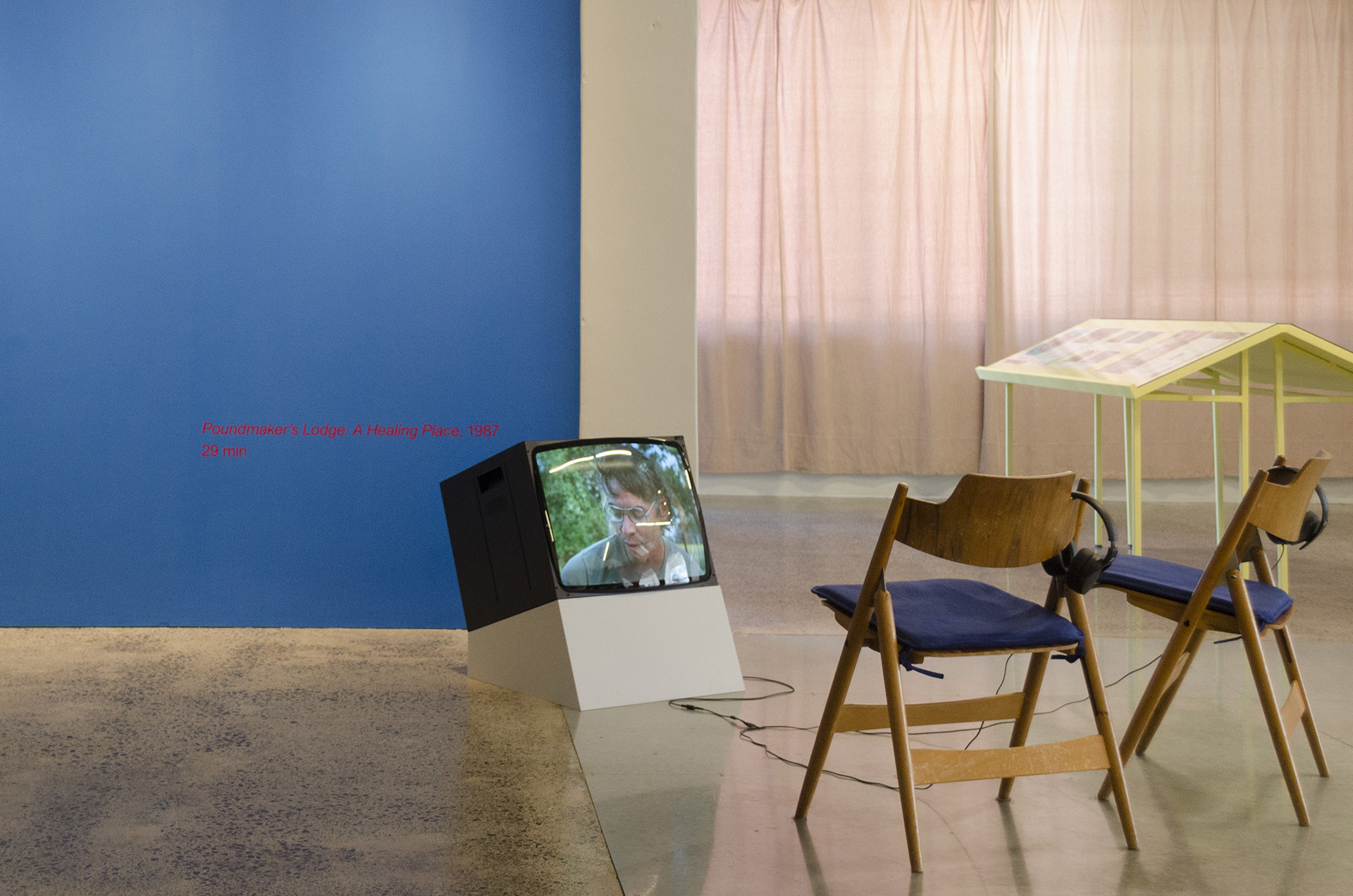
Poundmaker’s Lodge: A Healing Place, 1987. Alanis Obomsawin. Courtesy of the artist and National Film Board of Canada.

To move between: Healing and Resistance, Alanis Obomsawin. Installation view.
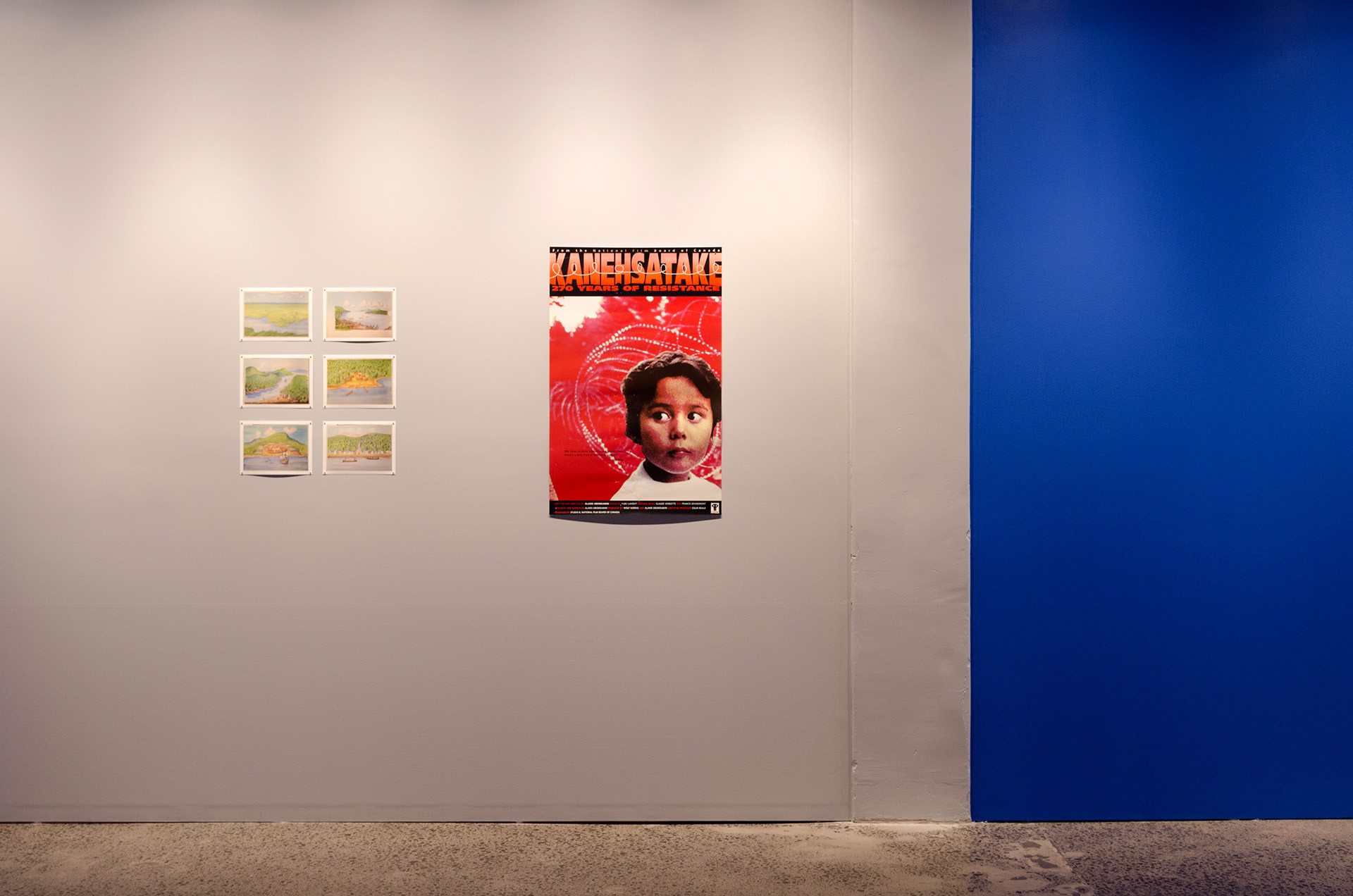
To move between Healing and Resistance, Alanis Obomsawin. Installation view.
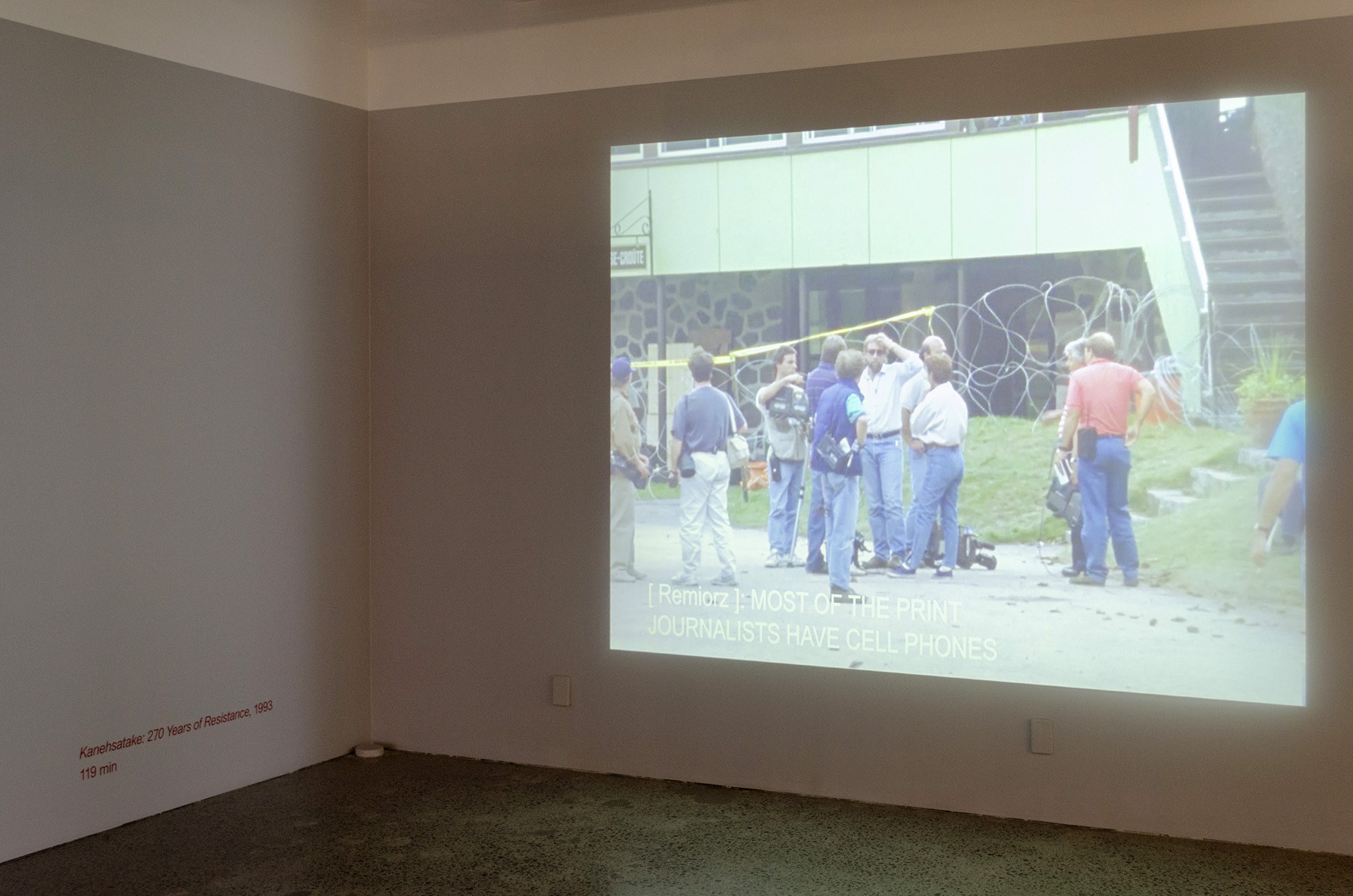
Kanehsatake: 270 Years of Resistance, 1993. Alanis Obomsawin. Courtesy the artist and the National Film
Board of Canada. Installation view.
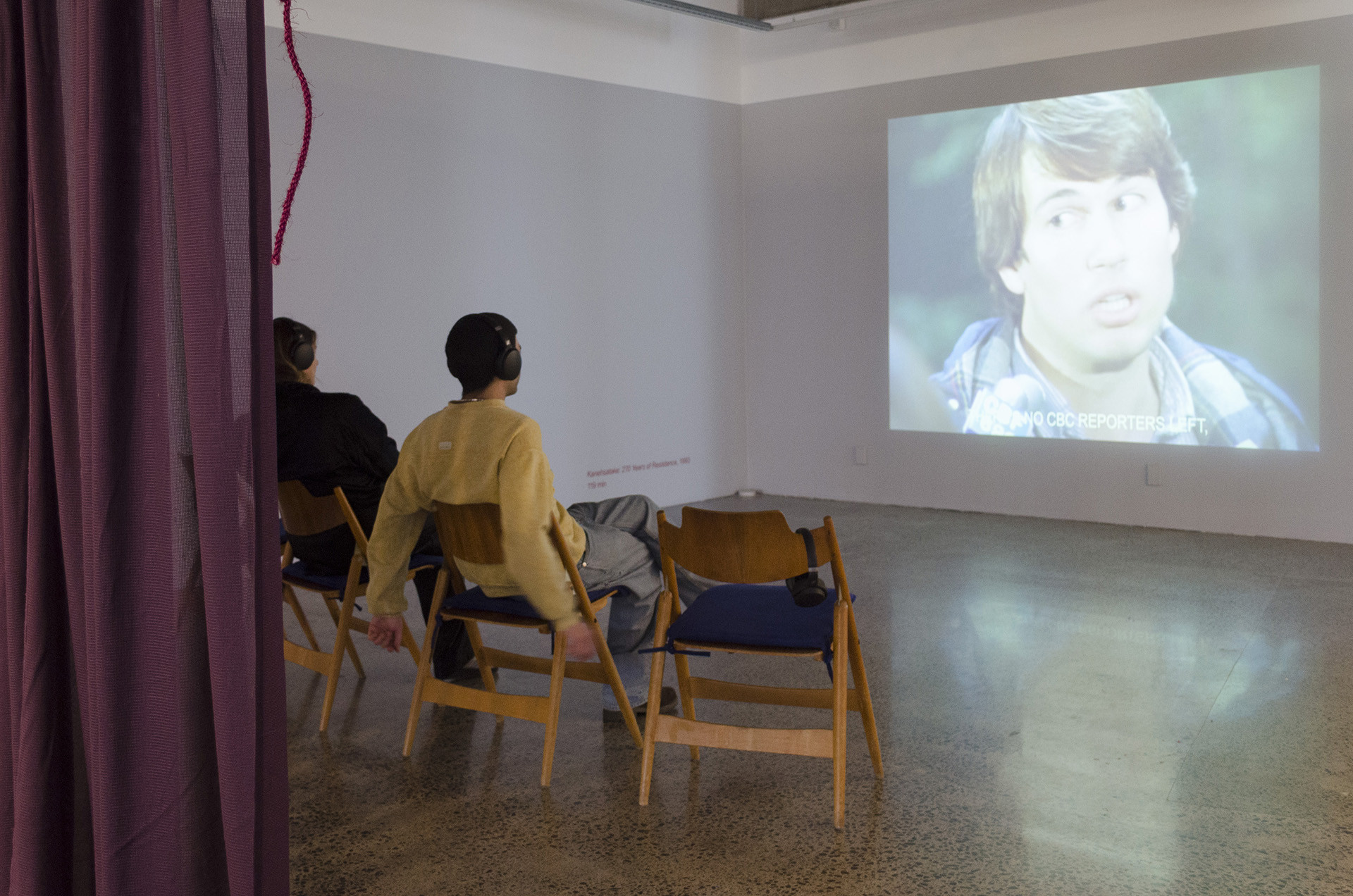
Kanehsatake: 270 Years of Resistance, 1993. Alanis Obomsawin. Courtesy the artist and the National Film
Board of Canada. Installation view.

To move between Healing and Resistance, Alanis Obomsawin. Installation view.
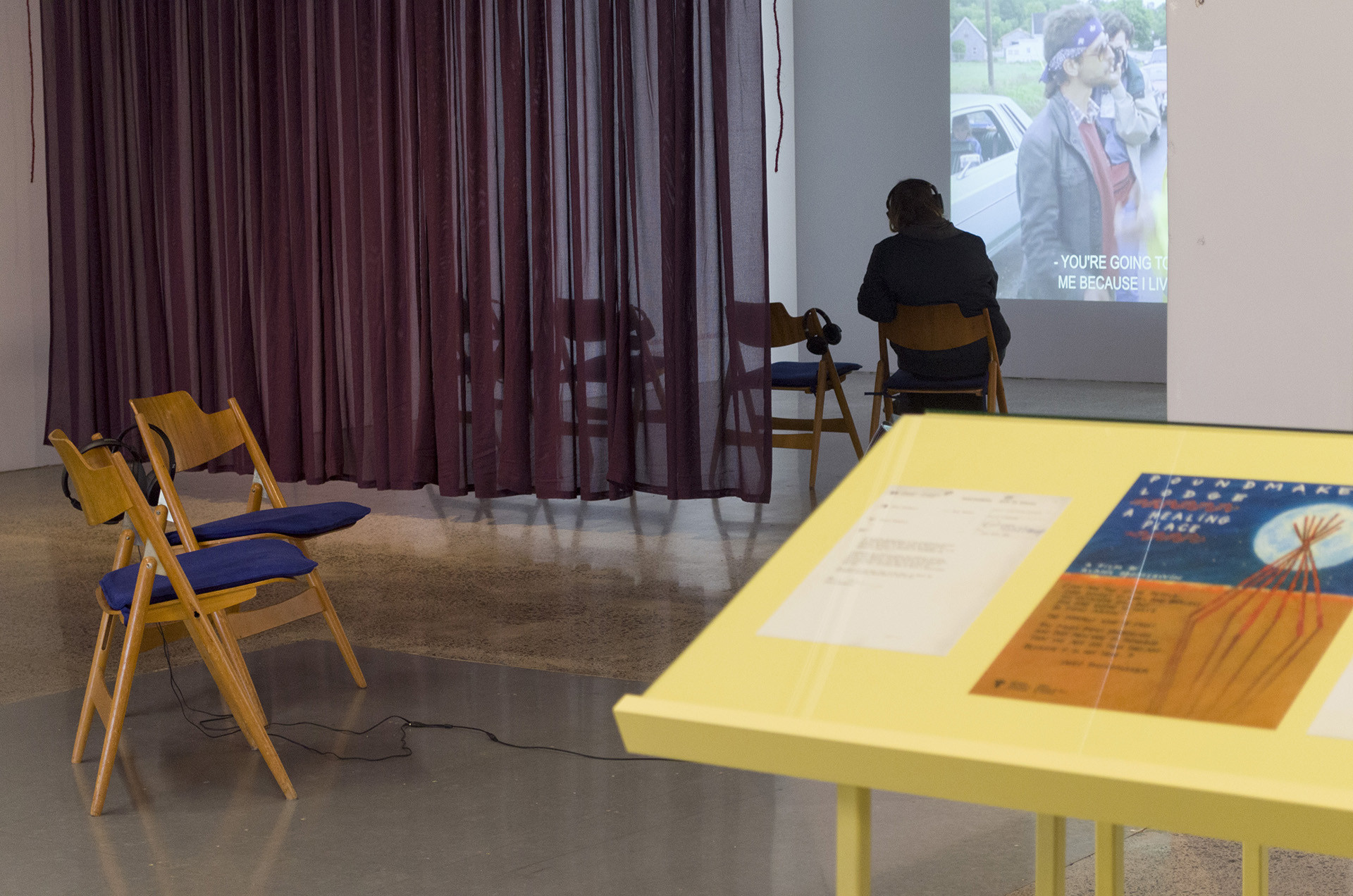
To move between: Healing and Resistance, Alanis Obomsawin. Installation view.
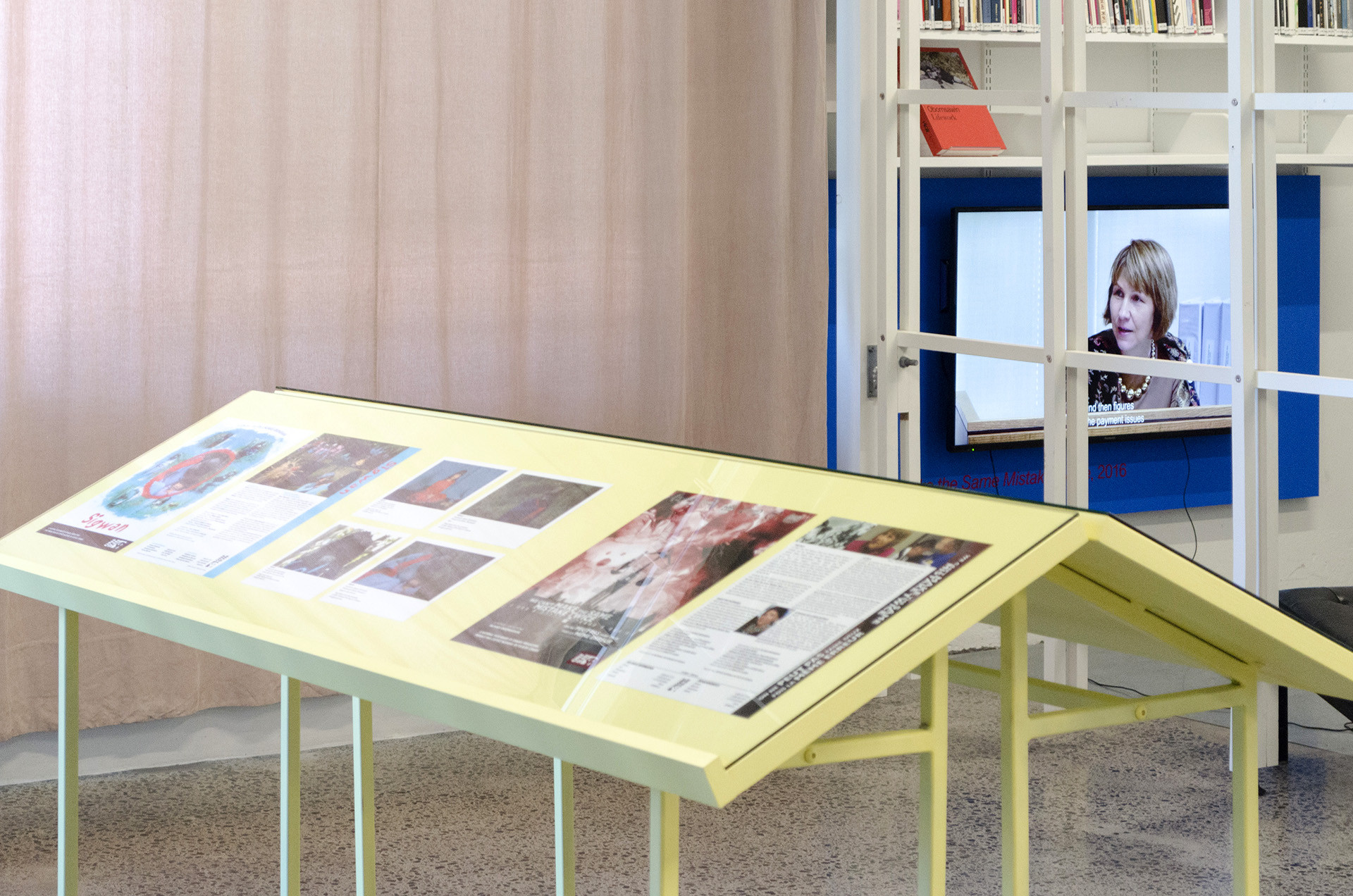
Selected ephemera, vitrines. Courtesy the artist and the National Film Board of Canada. Installation view.
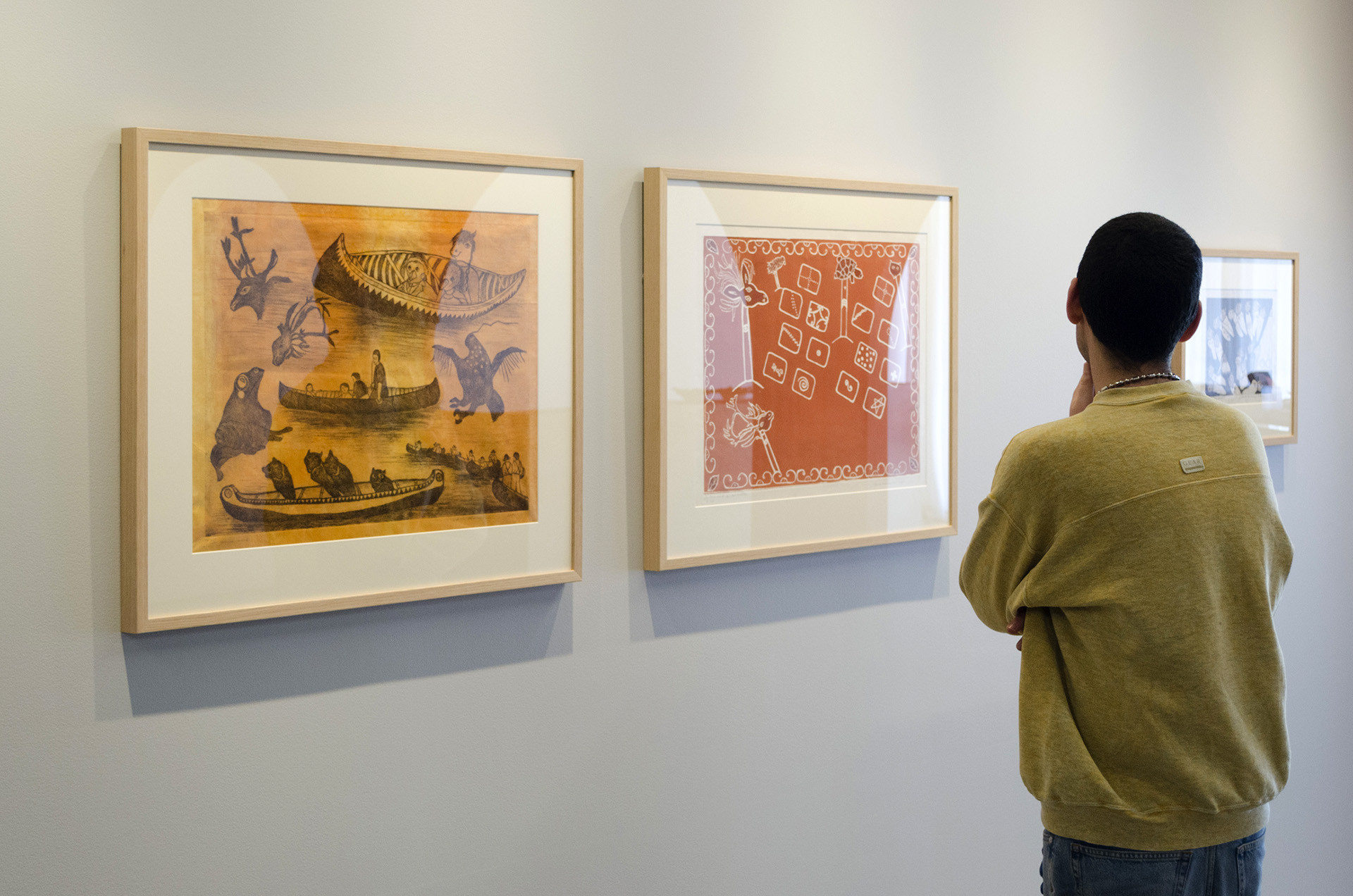
The Great Visit, 2007. The Sacred Land of My Ancestors, 2004. Ours qui dansent (Bear Dance) Alanis Obomsawin. Courtesy of the artist.
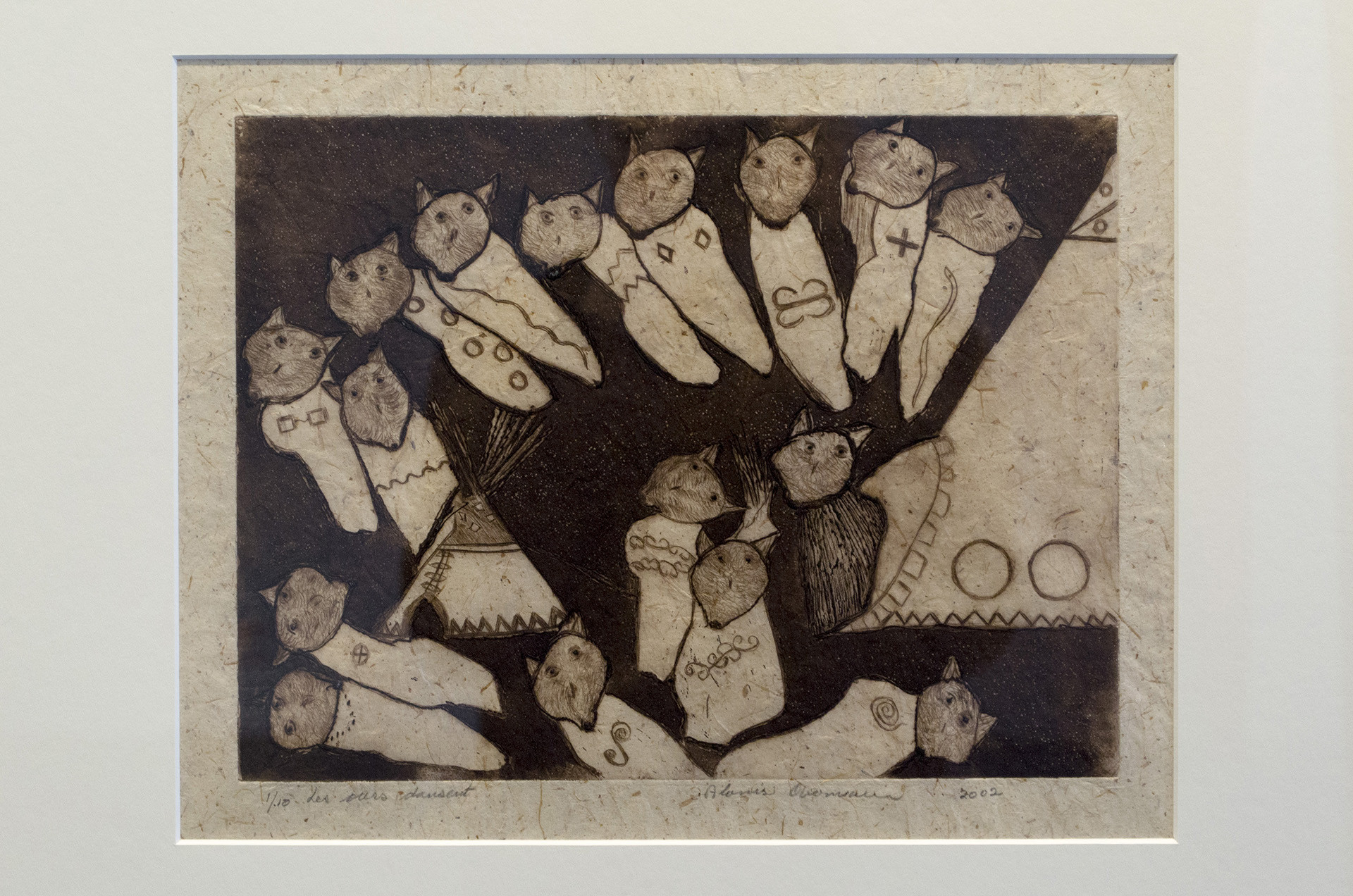
Ours qui dansent (Bear Dance) Alanis Obomsawin. Courtesy of the artist.

The Great Visit, 2007. The Sacred Land of My Ancestors, 2004. Ours qui dansent (Bear Dance) Alanis Obomsawin. Courtesy of the artist.
The work of Abenaki filmmaker Alanis Obomsawin begins in the sacred space of listening. Her decades-long career has involved engaging with particular communities and telling their stories in a mana-enhancing way. This exhibition presents four films and associated ephemera from the last 50 years. This selection charts two primary impulses within her work: the impulse to heal, the impulse to resist. The selection spans documentary covering Indigenous-led health facilities to fables of reconnection with non-human characters. Together these works offer a nuanced view on what it would take to live in a just world.
View full exhibition text
Move to the beat of the dream, which is also the heart, which is also a drum.
The work of Alanis Obomsawin emerges from her life experience and a profound commitment to listening hard and hearing the hard truths that can surface in this process. Growing up in Canada in the middle of the 20th century, she was often faced with structures of disempowerment. Obomsawin has sought to carve out an alternate experience for her community by developing a model of filmmaking that captures humanity’s fullness.
Being in-relation is fundamental to the work of Obomsawin and this engenders fullness. If we consider the heart-drum as a way to measure relationships, then we are invited to consider relationships as being interdependent and bound to the potential of all beings: those that have gone before and those that are yet to come. No beat is heard alone, and it is this approach that clearly manifests the potential of Indigenous filmmaking. Continuing with this thinking, each of the four films included in this exhibition contain within them all the communities she has engaged with since beginning work at the National Film Board of Canada in 1967. That is to say, while each of these films tells a specific story of a specific place they also incite transformation that moves from the screen back into facets of life.
The facets of life we encounter in this selection of films navigate indisputable relationality: when this happens, that happens. In Poundmaker’s Lodge: A Healing Place (1987) we are presented with the deep impact of an Indigenous-run addiction and mental health facility; in Kanehsatake: 270 Years of Resistance (1993), we are provided with a critical Indigenous view of an illegal occupation of land; Sigwan (2005), follows a young girl as she experiences alienation and reconnection with non-human relatives; We Can’t Make the Same Mistake Twice (2016) provides insight into inequities of the care system as it follows a decade-long court case filed by the Assembly of First Nations and the First Nations Child and Family Caring Society of Canada against the federal government of Canada.
Starkly opposed to the dehumanisation that happens through colonial violence—as experienced in Canada and in Aotearoa New Zealand—Obomsawin enacts the full potential of meaningful relationships to galvanise educators, healthcare providers, families, and politicians to reconsider ingrained hegemonic, often disembodied, value systems. When we reflect on processes of administration—of accessing and participating in life—what value systems are serviced by these and which aren’t? Does this value system reflect, not even so much who we are, but who we wish to be? In this act of galvanising, Obomsawin fuses the sense of resistance unequivocally with the capacity of healing in order to play her beat. The beat she plays is: this world can be just, this world can be just.
Biography
-
Alanis Obomsawin is a member of the Abenaki Nation and one of Canada’s most distinguished filmmakers, and leader of the Indigenous struggle. Alanis Obomsawin is a director and producer at the National Film Board of Canada, where she has worked since 1967. Her upcoming films are Wabano: The Light of the Day and The Green Horse(working title). These films will be her 56th and 57th films in a career now spanning 56 years, devoted to chronicling the lives and concerns of First Nations people and exploring issues of importance to all. Her body of work includes such landmark films as Kanehsatake: 270 Years of Resistance (1993), documenting the 1990 Kanien’kéhaka (Mohawk) uprising in Kanehsatake and Oka, as well as her groundbreaking Incident at Restigouche (1984), a behind-the-scenes look at Quebec police raids on a Mi’kmaq reserve. This year Obomsawin will receive the Edward MacDowell Medal, recognizing individuals who have made significant cultural contributions. She is the first woman filmmaker to receive this award in its 63-year history. In 2021, the Toronto International Film Festival presented Obomsawin with the Jeff Skoll Award in Impact Media, recognising leadership in creating a union between social impact and cinema. In 2020, Obomsawin received the Rogers-DOC Luminary Award at the DOC Institute Awards, in addition to the Glenn Gould Prize.
Events
To move between: Healing and Resistance | Alanis Obomsawin in conversation with Edith Amituanai
Keynote lecture: Alanis and me - Native interventions on a Māori Wahine Filmmaker, Whetū Fala
Book presentation of Slow Boil
Karangahape Road Art Open Late
Reading Room
“Before I made films I was singing”
2023 programme
Each year we orbit around one question in the company of artists and through exhibitions and other programmes. Across the year we explore the edges of what this question offers us, and what artworks and their authors can weave together. In 2023 we ask “where does my body belong?” You can think of this as one exhibition in five parts, as a score played across a calendar, or maybe even as a forest.
Maree Horner
J.C. Sturm
Chevron Hassett
Özlem Altın
Quishile Charan
Judith Hopf
Laida Lertxundi
Rosemary Mayer
Alanis Obomsawin
Prairie Hatchard-McGill
Angela Pan
Hulita Koloi
